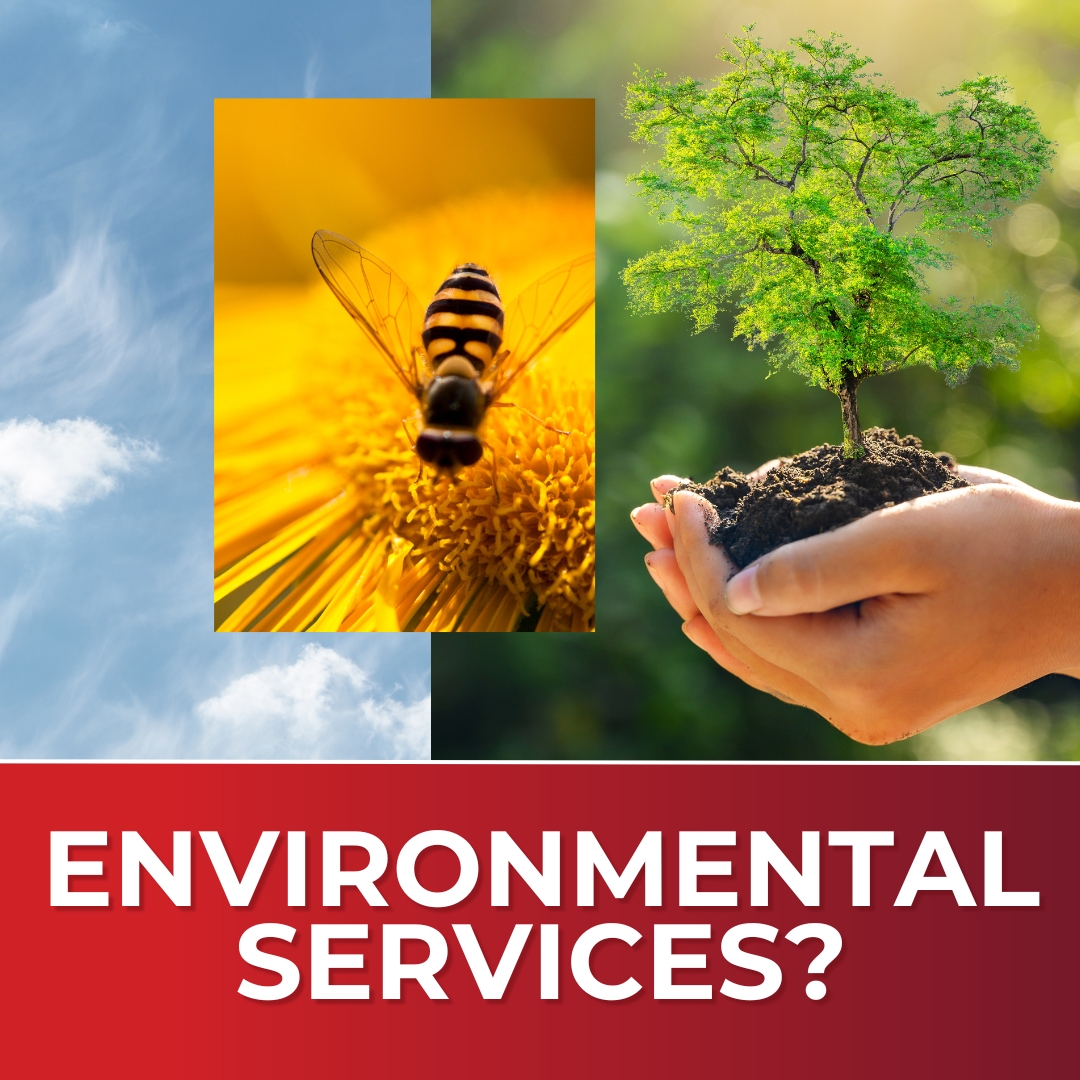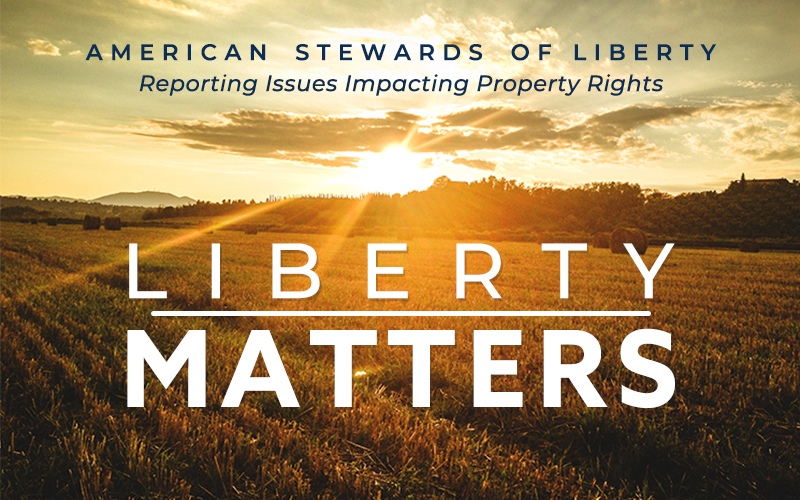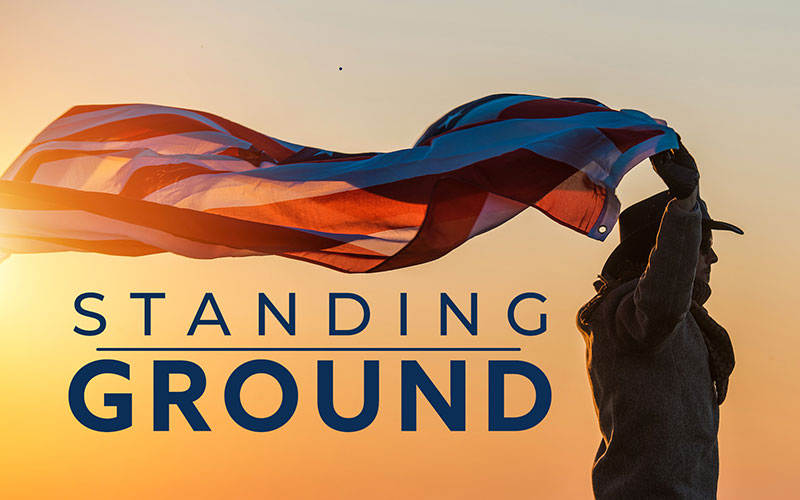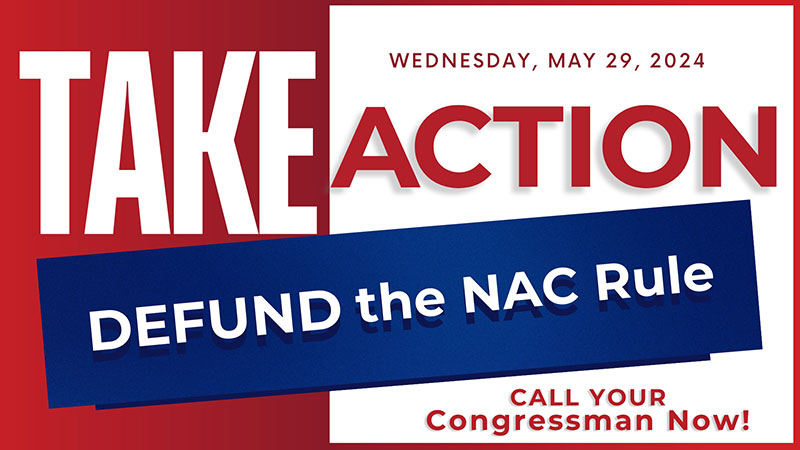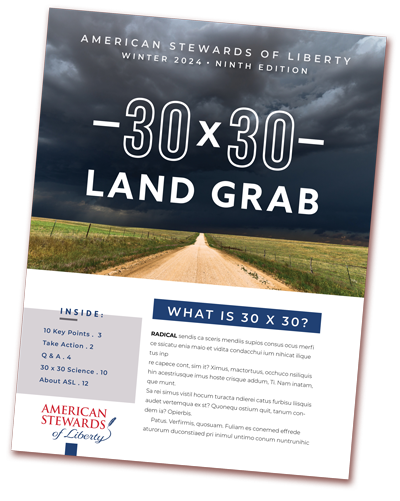The USDA is preparing policy to implement the Sustains Act, determining who will own “environmental services,” which include the air we breathe, photosynthesis, pollination, and the health benefits of open space.
This step is critical for proponents of the United Nations’ sustainable development agenda to achieve, as it will provide the path to transfer America’s real assets from private citizens to federal and international interests. The earlier attempt to accomplish this was stopped when the Natural Asset Company scam was soundly defeated in January.
Nevertheless, the Biden-Harris Administration is preparing to determine ownership of natural processes on private lands as it implements the Sustains Act authorized through the Consolidated Appropriations Act of 2023. They are dragging America into a dangerous black hole that will have devastating consequences on our economy, and on individual property rights.
There is a reason “natural processes” have never been considered property before. The way in which the monetary value of these natural assets must be derived is purely subjective. These are not true property rights which can be held by someone to the exclusion of another with the value determined by consumers. The value of natural processes will be set administratively, which can be changed depending on the social agenda of who is in the White House.
Some have argued that “environmental services” are a legitimate commodity that should be available for trade through the free market system. However, these arguments fail to acknowledge that the potential market for “environmental services” was created solely by blackmailing producers to comply with a social agenda, for the purpose of implementing the United Nations’ sustainable development targets.
They are not a “free market” product. The only reason we have “carbon credits,” or “carbon sequestration” is because those now holding the political power, and those seizing the opportunity to get rich off the scam, are using this power to impose their social agenda on industry and the rest of us.
Environmental services are the antithesis of a free market system. Just because they are taking advantage of our free markets to continue the scam does not make them any less blackmail.
Getting back to basic principles, neither our nation nor our financial markets were to be driven by social agendas dictating how Americans would live. This is precisely what our founders fought against. Nevertheless, this is the long game behind monetizing natural processes.
What is the Sustains Act?
The Sustains Act provides a way for private entities to contribute funds to help implement conservation programs on private land. The U.S. Department of Agriculture administers the program and the Secretary is given sole discretion as to how the program will be carried out. August 16th of this year, the USDA issued a “request for information,” published in the Federal Register and asked that public comments be submitted within 30 days, by September 16th.
This “request for information” is not a formal rule-making process where citizens can later challenge the final policy through the Administrative Procedures Act. Instead the “request for information” invites people to submit comments, which the USDA may or may not take into account, and serves to allow the Department to claim they involved the public in the development of policy implementing the act.
This is what administrations do when they want to implement a social agenda without accountability to the people.
Who Will Own The Environmental Services?
The new law sets out how the Secretary is to determine ownership of the environmental services that are created on private land through the federal conservation programs. The contributing entity, the one who contributes private funding to the conservation programs, is to “prescribe the terms of ownership” of the environmental services, subject to the approval of the Secretary.
Notice, determining the value and ownership of these natural processes produced from private lands requires only the involvement of the Secretary and the private contributing entity — not the landowner.
In the section titled “Role of Contributing Entity,” the law states:
“An entity contributing funds under this subsection may –” (5)(D) “with respect to an activity funded pursuant to this subsection that may result in environmental services benefits to be sold through an environmental services market, subject to the approval of the Secretary, prescribe the terms for ownership of the entity’s share of such environmental services benefits resulting from such activity;”
The decision of who owns the environmental services does not include the producer or landowner.
Under the section titled “Producer Participation,” the law directs the following:
(6)(A) “Notification – The Secretary shall establish a process to provide notice to producers — (i) of activities that may be carried out through a covered program, pursuant to this section; and (ii) any terms prescribed by the contributing entity under paragraph (5)(D) with respect to such activities.”
Even though the section is labeled “producer participation,” there is no producer participation prescribed in determining who will own the environmental services derived from the private land. What is directed is that notice be provided to the producer of the decision the Secretary and the contributing entity have made for how the environmental services will be allocated on their property.
The next section titled “Retention of Environmental Service Benefits,” raises more questions than it answers:
(6)(B) “The Secretary shall not claim or impede any action of a producer with respect to the environmental services benefits they accrue through activities funded pursuant to this subsection.”
After the Secretary and contributing entity have determined how much of the environmental services the contributing entity owns, presumably based on their financial commitment contributed to the program, then the landowner can assert what he believes he has accrued through his activities, and the Secretary cannot claim or impede this assertion.
What is left unaddressed is what portion will the Federal government own? This section refers to the producers’ claim of ownership of the environmental services, and prevents the government from impeding this. Logically, the portion the Federal government owns has already been decided when the Secretary and contributing entities earlier determined ownership of the natural processes.
So the division of who owns the natural processes on private lands that are enrolled in these federal conservation programs will be determined by the contributing private entity and the Secretary, after which the landowner / producer may assert his claim.
What is also unclear is whether the addition of private funds can be added to a program retroactively, in other words, after the landowner has already enrolled in the program. There is nothing in the Sustains law that specifies this new authority only applies to new enrollments. What if a contributing entity wants to contribute funds to a covered program on property already enrolled?
The conservation programs subject to the Sustains Act include:
- Environmental Quality Incentives Program
- Agricultural Conservation Easement Program
- Regional Conservation Partnership Program
- Emergency Watersheds Protection Program
- Healthy Forests Reserve Program
- Watersheds Protection and Flood Prevention Act programs (excluding the Watershed Rehabilitation Program)
Advancing the Biden-Harris Natural Asset Strategy
In January of 2023, the White House finalized the “National Strategy to Develop Statistics for Environmental – Economic Decisions (SEED)”. This creates a new line-item on the Federal Balance Sheet that will record the value of real assets such as land and water, as well as natural processes such as air and environmental services. These values will be derived from all lands in the U.S. regardless of who actually owns the land, be it federal, state, local or private.
The Strategy is a part of the larger 30×30 agenda, which is the international plan to permanently protect 30 percent of our lands and oceans by 2030. Just as with the 30×30 initiative, there is no Congressional or Constitutional authorization for this National Strategy. It is being directed solely from the White House.
The 30×30 land grab increases the protected lands in America, reducing those lands owned by private citizens and increasing the federal control over private lands largely through conservation programs and easements. The value of the protected lands can be transferred to others by creating a new asset, “environmental services” through “Natural Capital Accounts,” and the defeated “Natural Asset Companies,” or NACs.
Just as with the attempt to create NACs on the New York Stock Exchange, this strategy will monetize elements that should never be considered property. If the Federal government can claim ownership of these processes or even regulatory powers, they can control people’s use of these processes through devices such as carbon credits, biodiversity credits, water quality credits, and taxes.
Another dangerous element of this Strategy is that it places the value of all land on the Federal Balance Sheet, including private property, for the first time in the history of the United States. This includes the value of every American’s residential lot and home. In so doing, every American’s property will be considered a U.S. Asset that adds to the nation’s financial position in the world economy. In simplistic terms, it becomes collateral for the growing national debt.
In April of 2024, the White House released the results of four pilot natural asset accounts that explain how they will derive the value of these assets for Federal accounting purposes. These four test accounts cover the elements of Land, Water, Air and Environmental Services, and they reveal several concerning actions. These are:
- Under the land pilot test account, they clearly state that private property will be included as a Federal asset.
The press release states:
“ … Private land in the contiguous 48 states was valued at $32 trillion, equivalent to roughly 30% of the net wealth already measured in U.S. Accounts. Accounting for natural assets like land on our nation’s balance sheet is critical; omitting them would dramatically understate U.S. wealth.”
The linked document cited further reinforces their intent:
“Our results underscore the potential importance of private land as a quantitatively significant asset on our national balance sheet…”
- Under the Environmental Services pilot test account, they make clear that not only will the value of the real property be included on the federal balance sheet, but also the natural processes derived from these lands where the federal government has funded projects such as the conservation programs.
This is where the “Sustains Act” becomes one of the implementing components of this strategy, because it will create a monetary value for these natural processes derived from the conservation programs, the ownership of which is being determined by the Secretary of Agriculture.
From the White House Strategy:
“When the government spends a dollar to restore a coral reef or a forest that will attract tourism, supply water, or clean the air, our current system does not capture the economic value of this investment. The National Strategy gives us a path to change that.” (Introduction, page iv)
From the press release we learn more about what will be tracked in this account:
“Progress is ahead of schedule for developing natural capital accounts such as forests, pollination, urban ecosystems, and natural hazards. In addition, U.S. researchers are working with their European counterparts to understand lessons learned for implementing natural capital accounts in different countries.”
- All of these test pilot accounts rely on the UN Accounting System of Environmental-Economic Accounting (SEEA) in order to derive the value of these assets. Because Environmental Services and the value of natural processes is a subjective value, they need to rely on this esoteric system that does not conform to U.S. Accounting standards, just as they were attempting to do with NACs.
- A key purpose for the Strategy is to track our progress towards the UN Sustainable Development Goals, something which neither Congress, nor the people have approved.. Once this system is in place, it gives the Federal government the data and means to control how Americans use their property and whether citizens can be governed to have a “net zero” impact on climate change.
Where Do We Go From Here?
Even though citizens comments can be ignored by the Secretary as it prepares how it will implement the Sustains Act, it is valuable to make your position known so that if the next administration is not in on the caper, they can use public outcry against this action as a basis to stop the monetization of natural processes.
Here are three points we recommend you make in your comments.
- Natural processes should not be monetized, owned by one entity to the exclusion of another, through environmental services markets.
- Whatever benefits are created as a result of the conservation programs remain owned in full by the landowner of that property.
- The addition of private capital being used to fund federal conservation programs cannot occur retroactively on lands already enrolled.
You can submit your comments here.
We also have an opportunity in the coming months to call on Congress to rescind the Sustains Act through the budget reconciliation process. It is not too soon to ask your Representative and Senators and ask that they do so.

